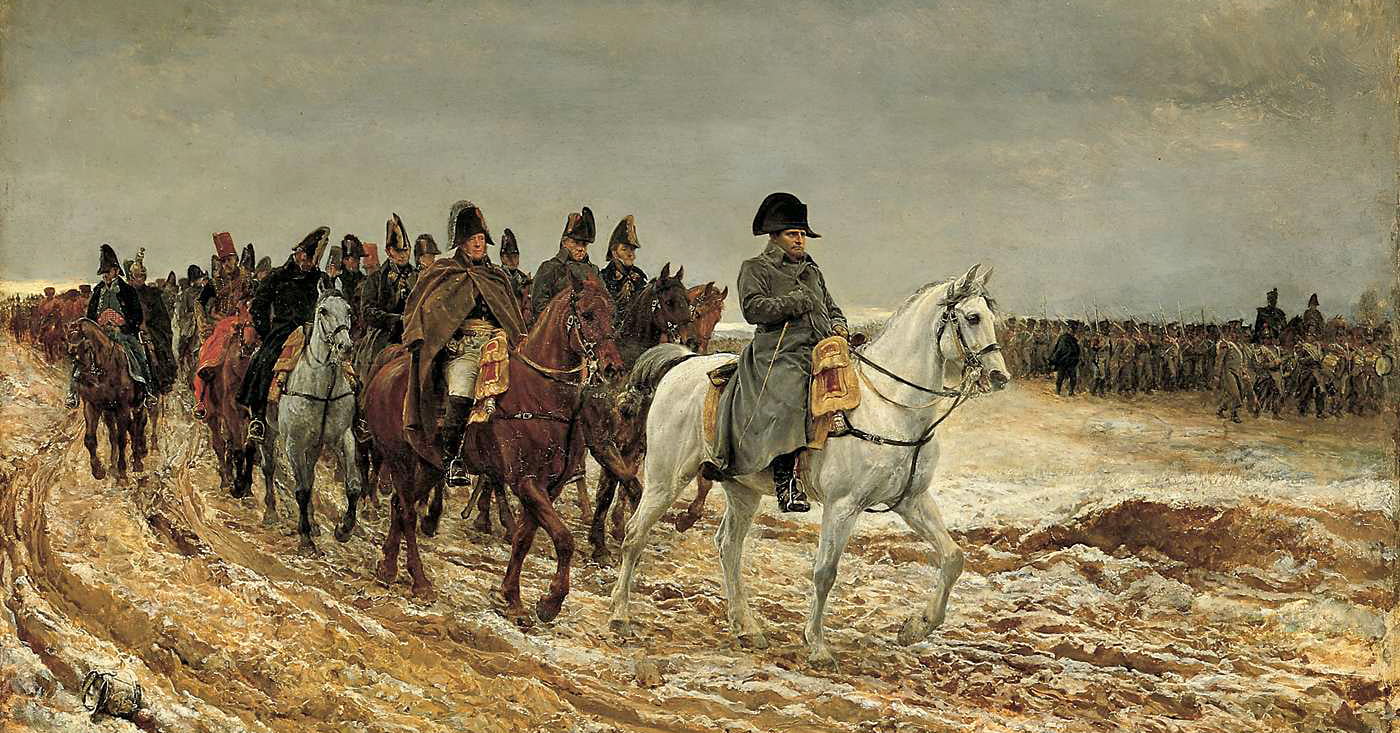The French emperor and commander is often credited with saying that the state should not skimp on supporting its armed forces. We have verified the accuracy of this quote.
A statement allegedly belonging to Napoleon can be found not only on numerous websites with quotes, but also on social networks - for example, in "VKontakte", Twitter And Facebook. The phrase is also popular among high-ranking officials. Her mentioned, in particular, Vladimir Putin during a big press conference in 2017, and two years earlier Vladimir Medinsky, who then served as Minister of Culture, published article entitled “He who does not feed his own culture will feed someone else’s army.” However, in the last two cases the expression is mentioned without connection with the French emperor.
Despite the popularity of this quote on the Russian-language Internet, it was not possible to find its mention along with a reference to Napoleon in French or English. The quote closest in meaning, also sometimes attributed to the French emperor, is “an army marches on its stomach,” however, its authorship, apparently, does not belong to Napoleon. As The Quote Investigator portal found out, for the first time it attributed Bonaparte only in 1862 a small American newspaper, although four years earlier the historian Thomas Carlyle put the same phrase into the mouth of the Prussian king Frederick II the Great, who lived in the 18th century.
Culturologist Konstantin Dushenko, exploring the origins of expressions popular in popular culture, in the collection “Quotes from World History” gives very meager commentary regarding the phrase being tested. He reports that “in Russia in the last decades of the 20th century” it was “attributed to Napoleon I, but this saying is not found in foreign reference books.” In the 1990s, such an attribution was indeed quite popular: for example, the magazine attributed the phrase to the French emperor "Army" in 1993, Vladimir Zhirinovsky in 1994 and Aman Tuleyev in 1999.
However, in the last decades of the 20th century such attribution was not total. In one of the issues of the newspaper "Stolitsa" for 1991 there was published note “Samizdat of General Rodionov”, dedicated, apparently, to a brochure published by the future Minister of Defense and State Duma deputy Igor Rodionov. The publication’s correspondent wrote: “From the very first lines, the author calls on world military authorities as his assistants. Clausewitz, indeed, warned: “A people who do not respect their army will feed someone else’s.” And Napoleon, as we know, believed that “four newspapers can do more than an army of one hundred thousand.” Probably, subsequently the first phrase underwent some changes, and its authorship passed to the commander mentioned in the next sentence - after all, he is much more famous than his contemporary and military theorist Carla von Clausewitz. We note that in the works of the latter we could not find a verifiable expression, but a year earlier “Young Guard” represented these words are like a generalized “Clausewitz’s thought”, and not a quotation. By the way, the phrase about four newspapers was given to Napoleon attribute only at the end of the 19th century, and in the original printed publications are compared to “a thousand bayonets”, and not to a “hundred thousandth army”.
Even before the publication of Rodionov’s brochure and the subsequent note in Stolitsa, the quote was mentioned without authorship at all. For example, in one of the materials in the magazine “Soviet Pedagogy” in 1990 appeared such a fragment: “Historical experience shows that a society that does not respect its army is doomed to feed someone else’s.” In the same year, without connection with Clausewitz or Napoleon, the expression was mentioned, in particular, in magazines "Neman" And "Communist of the Armed Forces", and in the second case the expression is called “old, but not aging wisdom.”
Moreover, back in 1989, at a meeting of the Supreme Council of the USSR, one of the deputies, when discussing amendments to the law “On Cooperation” stated: “And at the same time, the same academicians five years ago advocated for the establishment of 3-5% contributions for the newly created infrastructure of cooperators, and, they say, they will overwhelm us with food and feed our country. They didn't feed me. If things continue like this, then, probably, we will have to feed not only the cooperators, but also someone else’s army.” Shortly before this, the newspaper “Moskovsky Literator” published a resolution of the Union of Writers of the RSFSR “On the attitude towards the army”, in which it was said: “The history of our Fatherland shows that in Russia there was and is no rank higher than the title of defender of the Motherland. A mercenary army is a sign of the inevitable collapse of society and its moral degradation. A people who does not respect their army is doomed to feed someone else’s army.” The authors make no reference to Clausewitz or Napoleon.
With a high degree of probability, it can be argued that the phrase being tested is a kind of reworking of an expression that appeared in the late 1980s, in which “respect” for the army was replaced by “feeding” it. Although it soon began to be attributed to the relatively famous military theorist of the 19th century, Clausewitz, the authorship was quickly “transferred” to Napoleon, who was much more familiar to the general public. Let us repeat that this expression is not used in connection with the French emperor in any authoritative source in French or English.
Incorrect quote attribution
- The Quote Investigator. An Army Marches On Its Stomach
- Oxford Essential Quotations. Napoleon I
If you find a spelling or grammatical error, please let us know by highlighting the error text and clicking Ctrl+Enter.






